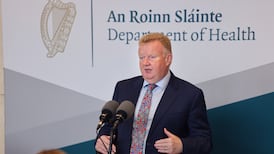The proportion of women in their forties attending the State’s oldest fertility treatment centre has more than doubled in less than 20 years, according to a new study.
A woman's chance of having a baby using fertility treatment falls significantly as she advances through her forties, the study of the Hari (Human assisted reproduction Ireland) clinic at the Rotunda Hospital shows.
Just over 2 per cent of women aged 43-45 years succeeded in having a baby after availing of fertility treatment. The cut-off age in the clinic for assisted reproductive technology, which includes IVF, is 45 years.
The study, published in the Irish Medical Journal, show one in eight 40-42-year-olds succeeded in becoming pregnant with IVF or similar treatment, compared with just one in 20 in the 43-45 year age group. The rate of pregnancy loss increased from 34 per cent to 56 per cent.
The study looked at over 2,000 egg collections from women aged 40 and over since 1997. Over this period, the proportion of women in this category grew from 7 per cent to almost 20 per cent.










